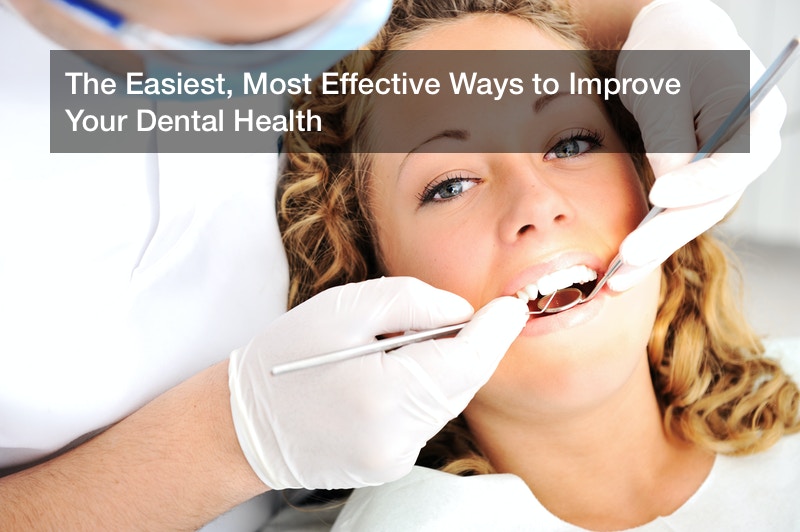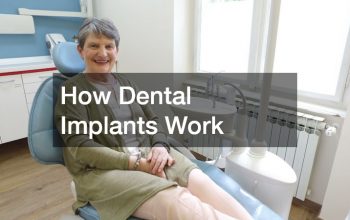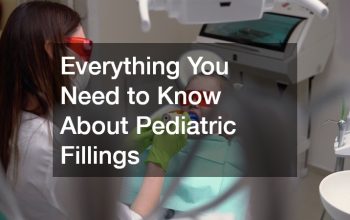

Many people don’t realize how incredibly important it is to maintain your oral health. In fact, most don’t even know that your oral health is directly related to your overall well-being.
Issues with your teeth, gums, mouth, and throat can all be indicators of much larger, potentially deadly problems in other portions of your body.
The best way to protect your body both now and in the future is to achieve better dental health through appropriate oral hygiene.
How Are Oral and Overall Health Related?
You’ve probably heard that the human mouth is one of the dirtiest things on earth – even dirtier than toilet seats and dog mouths. Is that true? Yes, technically it is!
The human mouth is filled with between 700 and 1000 different types of bacteria. These microscopic creatures thrive in the warm, moist home cavern that is your mouth. For the most part, these bacteria are harmless. However, those that aren’t can be a far bigger concern than you may realize.
When harmful bacteria build up in your mouth it can cause issues like gum disease, tooth decay/cavities, tonsil stones, and other annoying and potentially dangerous conditions. The bigger concern is that these same bacteria have been found to correlate to bodily conditions like heart disease, diabetes, blood infections, and strokes.
The question is: what can you do about these harmful bacteria or other health conditions stemming from your mouth? Simple – consistent dental maintenance.
Here are some of the most important ways you can achieve better dental health.
Standard Cleanings and At-Home Maintenance

Standard teeth cleanings, which are performed by your dentist, should be scheduled at least once a year – though twice a year is an even better option. During these cleanings, your dentist will perform a basic dental care evaluation and be able to ascertain an overgrowth of bacteria or signs of decay.
In addition to in-office cleanings, you should be making an effort for better dental health at home. Here are the three main ways to keep your teeth and mouth clean.
Brushing
It is recommended by the American Dental Association that teeth be brushed twice a day with fluoride toothpaste. Each brushing session should last at least two minutes to ensure that you have removed all the food and plaque stuck to your teeth. Plaque is the slimy white film that builds up on your teeth. It is filled with bacteria and is a major cause of bad breath.
If you fail to clean your teeth of all the debris, the plaque can turn into tartar which is hard and requires much more force to remove.
When brushing your teeth, follow these guidelines for the best results.
- Apply a small, pea-sized dollop of toothpaste to your brush.
- Hold your toothbrush at a 45-degree angle in the direction of your gums.
- Move the brush in small circles as if polishing the teeth.
- Be sure to polish the entire surface of the teeth, front and back.
- For the grinding surfaces of your teeth (where you chew) lightly scrub back and forth to dislodge bacteria and debris.
- Spit out toothpaste, do not swallow it.
It is also important to use toothpaste containing fluoride. Fluoride is a mineral that has been proven to help prevent tooth decay. Toothpaste containing fluoride can work to remineralize lost enamel and make your teeth stronger against acidic foods and drinks.
Fluoride exposure should be limited for children. Babies under 3 should only receive a small smear of toothpaste while brushing. Children 3 and up should use a pea-sized amount.
Flossing
Flossing is another important at home maintenance for your teeth. floss is a specially coated string that can be run between your teeth to dislodge food, bacteria-harboring plaque, or anything else that may be wedged between your chompers.

Experts agree that performing a daily floss is effective at removing stubborn food particles that cannot be removed by brushing and it prevents dental decay.
It’s okay to floss more than once a day, especially if you have a stubborn piece of food stuck in your teeth, but over-flossing or pressing the floss too deep into your gums can cause inflammation and pain.
Tongue Scraping and Mouthwash
Two oral health steps that you might not consider are tongue scraping and mouth wash.
Though both are considered optional care techniques, they are great for achieving overall better dental health. A 2005 study showed that using a tongue scraper twice a day for a seven-day period reduced the number of bacteria in the mouth.
Mouthwash is another way to improve your oral health with the added benefit of acting as a transport vehicle for certain medications and treatments. For instance, some mouthwashes have numbing agents and peroxide treatments to help heal wounds in the mouth.
Repairing Chipped and Cracked Teeth
The restoration and treatment of chipped and cracked teeth have two main purposes.
- Repairing the look and feel of jagged teeth
- Preventing pain and furthered decay of severely damaged teeth
When the chipped tooth needs only mild repair, it will typically be filled or bonded. A filling is perfect for teeth in the back portion of your mouth, whereas bonding is intended for your front teeth to ensure they look natural and even.
For severely worn and damaged teeth, your dentist will likely use a crown. Dental crowns are a cap for your tooth that restores the strength and overall appearance of the tooth. These crowns can be made from metal or color-matching materials (resin, ceramic, porcelain).

These procedures are vital to having better dental health as they resolve issues that are created by, or can lead to, dental decay.
Lower your Sugar Intake
Consuming sugars in high-volume, especially sugary drinks, can lead to the quick erosion of your tooth enamel. This is the hard, porcelain-like outer shell of your teeth. Inside the enamel is the dentin and pulp.
The dentin is a collection of tubules that lead directly into your tooth pulp. The tooth pulp is a soft tissue that houses all the nerves and blood vessels for your tooth.
In other words, letting sugar break down your tooth enamel is not only bad for the tooth, but can be excruciatingly painful. If the decay caused by the sugar is too severe, your doctor may need to perform a root canal treatment.
This involves clearing out the damaged pulp from inside the tooth and filling in the space with a sealing material. Then, the tooth will be capped for further protection and to create the groundwork for better dental health.
Treat Tooth and Jaw Pain in a Timely Manner
If you are suffering from tooth pain, you might be tempted to take over the counter medication and ignore the issue. However, there are certain tooth pains you shouldn’t ignore.
Sensitivity to Temperatures
Remember our discussion about the pulp of your tooth? Is encases all the nerves and blood vessels. So, when your teeth become increasingly sensitive to cold or heat, it is an indicator that the pulp of your tooth may be swollen or even exposed.
Swollen tooth pulp can be a result of trauma to the tooth and should be examined by a dentist.
Pain when Chewing
Painful chewing is a major sign of having a cracked tooth. In addition to being painful, a damaged tooth can harbor bacteria, leading to tooth decay and nerve exposure. The best plan of action is to see a dentist as quickly as you can to have the tooth repaired.

To avoid further damage while waiting for your appointment, try consuming soft foods and chewing on the opposite side of your mouth. Also, avoid heavily acidic or sugary foods that can cause decay within the damaged tooth.
Tooth Aches that Cause Head Pain
If your tooth pain coincides with otherwise unexplained headaches, you likely have severe damage to the pulp and nerves of your teeth.
If you ignore these symptoms the pain can continue to spread to your ears, neck, and face. Additionally, if the bacteria in the pulp reaches the bloodstream, it can lead to serious health conditions like heart attack and stroke.
Debilitating Tooth Pain
When tooth pain seems to never end and causes pressure and constant sensitivity, you need to see your dentist. They will assess the damage and do their best to repair the issue as easily and painlessly as possible.
Take Dental Emergencies Seriously
Human teeth and jaws are outrageously powerful, but when accidents happen, they can also take on some serious damage.
When your teeth receive sudden and major damage, they need to be treated as quickly as possible. Emergency dental care is necessary for things like:
- The loss of an adult tooth.
- cracking and partial breakage of a tooth
- Severe bites to lip, tongue, or cheek.
- Sudden, intense tooth pain.
- Wounds and cuts on gums or the roof of the mouth.
The Link Between Dental Health and Mental Health
Better dental health is about more than keeping your body in good shape. It also holds a lot of power over mental health and vice versa.
Broken and discolored teeth in need of aesthetic treatment can lead to self-esteem issues and even depression. Seeking treatment and corrections to these issues can lead to overall better quality of life.
Those who suffer from mental illness and/or severe depression are also more likely to suffer from poor oral hygiene. This is due to the consumption of sugar, alcohol, and other substances along with mental and financial barriers between them and dental care.
These two qualities of the relationship between dental and mental health can create a dangerous cycle where better dental health can’t be achieved. If you or a loved one are suffering from this cycle, consider seeking out a clinic that integrates behavioral health and dental care.
Cosmetic Dentistry
Cosmetic dentistry is a broad term that covers dental procedures insurance providers don’t consider essential. Despite the misnomer, some of these procedures, like installing dental braces, implanting dental fixtures, and adding veneers, are vital to creating better dental health and oral habits in patients.
Other forms of cosmetic dentistry, like whitening, tooth filing, and micro abrasion are truly non-essential for dental health but may be essential for mental health and emotional wellbeing.
If you are suffering from issues insurance considers non-essential, consider reaching out to your dentist for information on payment plans or reduced costs.
Braces and Retainers
One step toward better dental health is to have misaligned jaws or severely crooked teeth repaired through the use braces and retainers.
To have braces fitted and installed you will need to visit an orthodontics specialist. These doctors specialize in diagnosing and treating malocclusion of the teeth or jaw. In certain, severe cases, the orthodontist may even need to perform surgery, install headgear, or attach permanent retainers.
If you are wanting to align your teeth for cosmetic reasons, orthodontists can also assist in choosing a low cost braces option.
Caring for Teeth as We Age
Focusing on better dental health is especially important as we age. While oral health issues can happy to anyone, the risk of severe issues becomes far more likely the older we get.

One such issue is gum disease (periodontal disease), which is a cumulative issue that happens from years of bacterial damage. This disease causes the gums to swell and bleed, which causes pain and damage that might lead to the need for tooth removal and dentures.
Often, gum disease is painless until the most advanced stages, which is why it is so much more prevalent in adults and the elderly.
Periodontal disease therapy beings with non-surgical treatments, but surgery may end up being necessary.
First, your teeth will be scaled to remove tartar and bacteria. Then, roots will be planed to lower the chances of additional tart buildup. Finally, antibiotics will be prescribed to treat the gum infection.
If those methods fail, surgery may be the only way to save the teeth or the bones in the jaw.
Championing Better Dental Health
Oral health is so much more than avoiding bad breath and yellow stains. No, better dental health is the highway to avoiding painful oral diseases, mental health issues, and serious physical ailments.
Follow the key steps to good oral hygiene and schedule regular visits to have your teeth cleaned and assessed.
If you are suffering from oral health issues and don’t know where to begin, you should reach out to a local dental health professional for an immediate evaluation.


